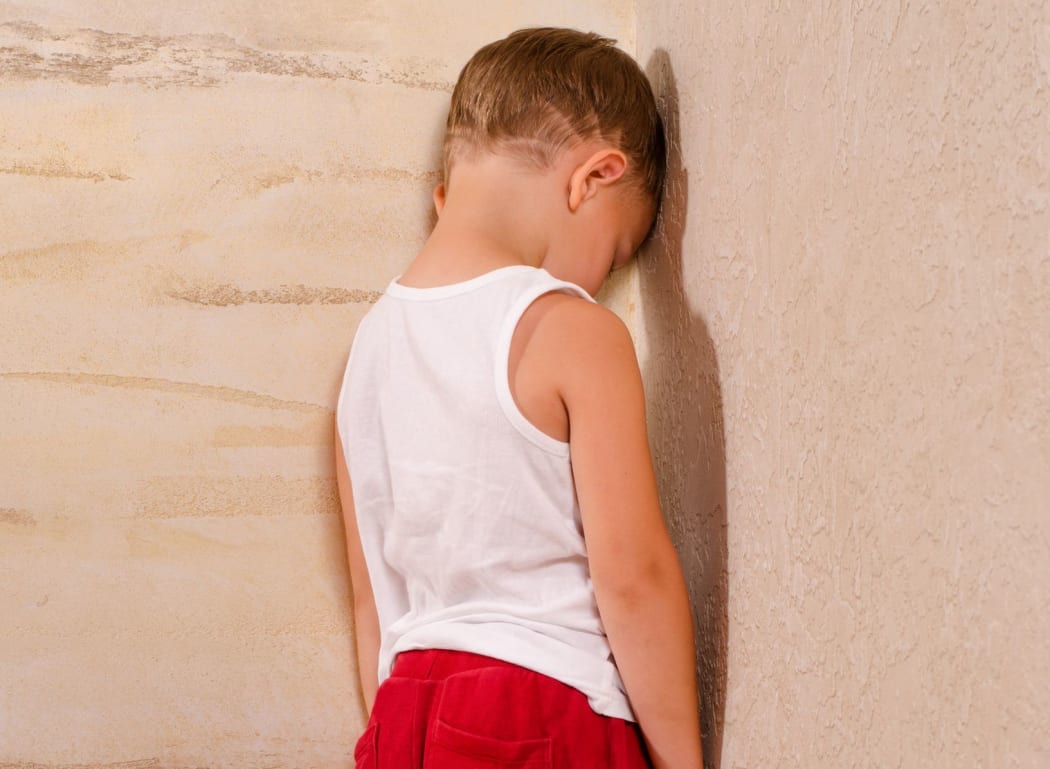
Photo: 123RF
Most people use a pretty basic formula for disciplining kids: good behaviour = reward, bad behaviour = consequences (like time out or punishment).
But psychologist Ross Greene believes giving kids negative consequences only leads to more bad behaviour.
Instead, adults need to work with kids to figure out why they misbehave and working on a solution together.
The method he’s devised – Collaborative & Proactive Solutions – has had remarkable results in schools.
Consequences like time outs may teach the kid that you don’t like their behaviour, but the behaviourally challenging kids Greene works with have already had more consequences than most of us will experience in a lifetime, he says.
“If consequences were gonna get the job done they would have got the job done a long time ago.”
These interventions don’t address the cause of the behaviour, he says.
“Time outs, suspension, depriving your kid of privileges, those don’t teach your kid any skills and those don’t solve the problems that are giving rise to a kid’s challenging behaviour.”
Kids do well if they can and if they’re not doing well something must be getting in the way, Greene says.
Most often this is a lack of skills in the areas of flexibility, adaptability, frustration tolerance and problem-solving.
To figure out which skills a child is lacking, adults can use the Assessment of Lagging Skills and Unsolved Problems test on Greene's website Lives in the Balance.
This test also identifies and defines the expectations they're having trouble meeting.
As Greene sees it, unsolved problems can be approached in three ways - Plan A, Plan B and Plan C.
Plan C is the problems you agree to set aside for now. (Sometimes removing some expectations that aren’t being met anyway clears the way to work on others, Greene says.)
Plan A is working to solve the problem unilaterally through the imposition of adult will.
Plan B is working to solve the problem collaterally with the child as your partner.

Dr Ross Greene, Psychologist Photo: supplied
The three aspects of Plan B are the Empathy step, the Define Adult Concerns step and the Invitation step.
The Empathy step is about gathering information and building your understanding of the child's perspective.
“Kids have information we badly need – information about what’s hard, information about what’s getting in their way, their concerns, perspective, point of view.”
Without the child's point of view, the problem will not be solved, Greene says.
The Define Adult Concerns step is identifying the concerns that have led to you using Plan A.
In the Invitation step, the adult and kid collaborate on a solution that must meet two criteria – it is realistic (meaning both parties can truly do what they're agreeing to do) and it is mutually satisfactory (meaning the solution truly address the concerns of both parties).
Parents have to put a little more time in to solve problems proactively, he says.
“You don’t want to ignore a kid drawing on the wall, but if it’s not the first time the kid has drawn on the wall then it’s not a surprise and I’m gonna ask the question ‘How come we haven’t solved that problem yet?”
Children should always be given advance notice of what you want to talk to them about, otherwise you're still springing it on them even though you're doing that proactively, he says.
The right time of day for the Invitation step will be different for every family. When Greene's own kids were younger they usually worked on Plan B at bedtime.
“It was a nice mushy time of day, they were available, there were no distractions.”
But be sure that you do make the time, he says.
“The worst case scenario is to never have these discussions and therefore to basically say ‘My kid and I don’t really solve problems together. We don’t really even talk to each other. We just go about our day and let things ride'.”
Making a move from parenting with adult-imposed consequences to collaborative problem-solving with your child brings up three common challenges, he says.
“What we’re asking parents to do here is shift from a predominantly emergent reactive form of parenting that has not served them well to organising so the vast majority of their problem-solving efforts are proactive and planned – that’s hard.”
The shift of focus from the behaviour to the problems that are causing it is another challenge, and also settling into the sense of a reshuffled hierarchy.
Yet doing this work together can teach your child to appreciate how their behaviour affects others, how to resolve disagreements without conflict, empathy and honesty, Greene says.
“Learning how to solve those problems and feel like you [the child] are effective at collaborating and problem-solving – two of the skills that are most important for helpings kids be productive in the real world – I can’t think of anything better than that.”

